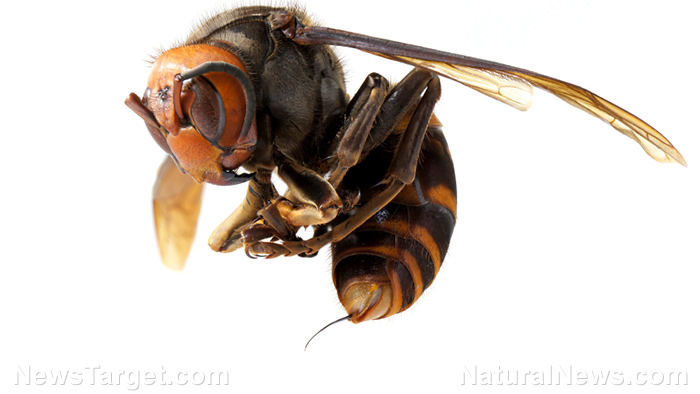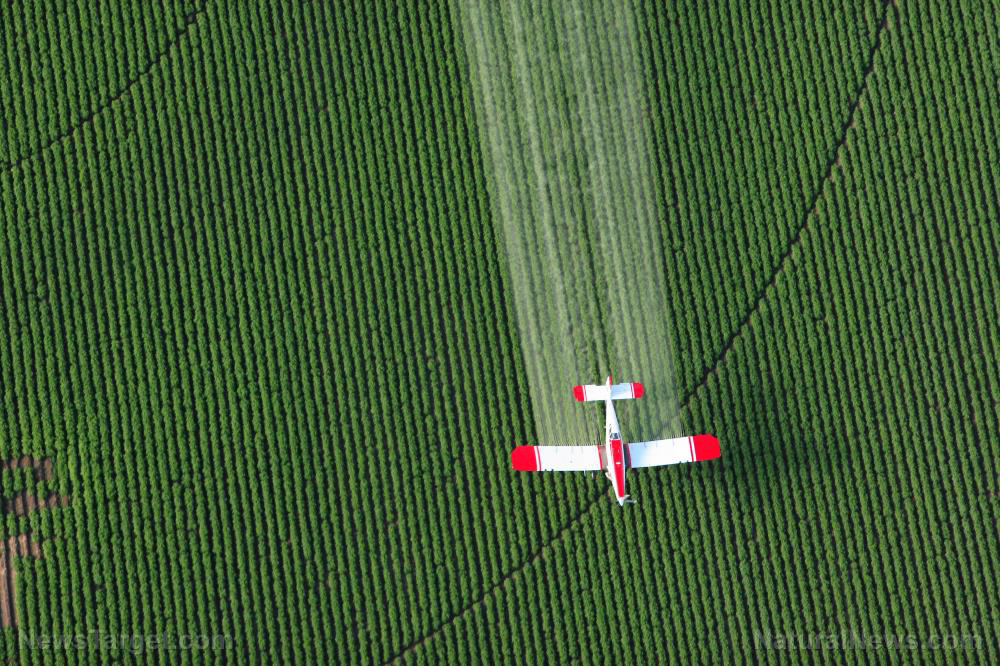Wasps are quick learners, especially when it comes to food scents
11/27/2020 / By Michael Alexander

As it turns out, wasps are fast learners when it comes to associating scents and olfactory cues with food sources. This is according to a team of researchers from New Zealand and Hungary, who, in a series of experiments, found that wasps are able to associate olfactory cues with food without any prior training.
As noted in the Journal of Chemical Ecology, invasive social wasps (Vespula vulgaris) residing in New Zealand’s ancient beech forests were found to be attracted to the chemicals benzaldehyde and n-octanol, both of which are responsible for the distinctive odor emitted by honeydew — a sugary and sticky liquid, secreted by aphids and scale insects as they feed on plant sap. The wasps, however, were not responsive to two known wasp attractants, isobutanol and acetic acid.
The opposite phenomenon, however, was observed in wasps that have settled in a suburban area in New Zealand, with the researchers noting in their study that the wasps in this area were more responsive to the attractants than they were to the honeydew odor.
The same was true in wasps that live in Hungary, with researchers noting their relative indifference to the honeydew odor and their attraction to isobutanol and acetic acid. (Related: Thinking, feeling insects? Study reveals paper wasps are capable of a form of logical (deductive) reasoning.)
Wasps naturally develop associative learning
As described by the researchers in their study, these results offer proof that the social wasps in New Zealand’s beech forests have naturally developed associative learning. They have learned to equate the odor of the carbohydrate-rich honeydew produced by scale insects to food.
According to the researchers, this is the first study to provide conclusive evidence of the occurrence and the development of associative learning of food odor by social insects in a natural ecosystem without any human interference, adding that this ability of wasps to learn and associate particular odors with food might explain their success at being adaptive in different environments.
“The associative odor learning discovered in social wasps in New Zealand demonstrates the ability of social wasps to respond and adapt to olfactory signals emanating from sugar resources,” the research team said.
The researchers, in their paper, noted that their findings can be used to develop new methods to monitor and control invasive wasp populations in different habitats in the country.
Invasive wasps, according to the researchers, are considered to be pests in New Zealand, as they have had detrimental effects on the country’s native fauna — especially those that live in the country’s ancient beech forests. This, the researchers said, is because invasive social wasps tend to hoard and feed extensively on honeydew, rendering the valuable resource unavailable to birds and other native wildlife, which then starve as a result.
Not only that, but according to other researchers, the wasps’ insatiable appetite for the sweet substance is altering the composition of the soil in New Zealand’s beech forests, affecting its fertility, nutrient cycling ability and even its natural decomposition processes.
“This is an ecosystem that’s evolved over tens of thousands, millions of years that we have come along and effectively changed because we’ve introduced wasps,” Phil Lester, an insect ecologist at Victoria University, said, adding that honeydew plays an integral part in the nutrient cycling process of New Zealand’s forests by providing energy to fungi, bacteria and other flora and fauna in the soil.
“We know it’s dramatically changing the environment. The flow-on effects are difficult to predict but they’re quite possibly intense,” Lester explained.
Visit Discoveries.news for more stories and studies on animal behavior.
Sources include:
Submit a correction >>
Tagged Under:
aphids, environment, honeydew, invasive species, New Zealand, research, scale insects, Study, wasp, wasps
This article may contain statements that reflect the opinion of the author
RECENT NEWS & ARTICLES
COPYRIGHT © 2017 ENVIRON NEWS





















